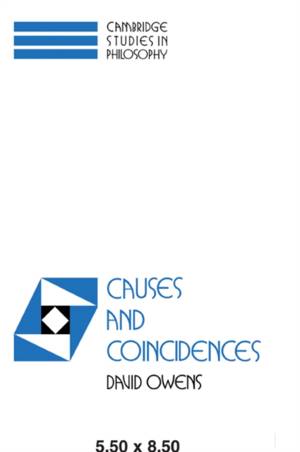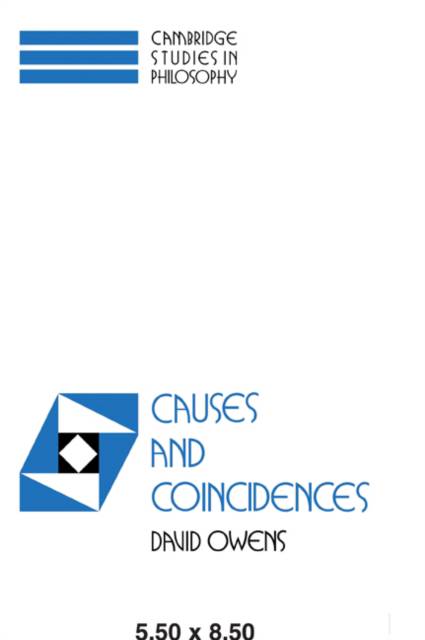
Bedankt voor het vertrouwen het afgelopen jaar! Om jou te bedanken bieden we GRATIS verzending (in België) aan op alles gedurende de hele maand januari.
- Afhalen na 1 uur in een winkel met voorraad
- In januari gratis thuislevering in België
- Ruim aanbod met 7 miljoen producten
Bedankt voor het vertrouwen het afgelopen jaar! Om jou te bedanken bieden we GRATIS verzending (in België) aan op alles gedurende de hele maand januari.
- Afhalen na 1 uur in een winkel met voorraad
- In januari gratis thuislevering in België
- Ruim aanbod met 7 miljoen producten
Zoeken
Omschrijving
In an important departure from current theories of causation, David Owens proposes that coincidences have no causes, and that a cause is something that ensures that its effects are no coincidence. He elucidates the idea of a coincidence as an event that can be divided into constituent events, the nomological antecedents of which are independent of each other. He also suggests that causal facts can be analyzed in terms of non-causal facts, including relations of necessity. Thus, causation is defined in terms of coincidence, and coincidence without reference to causation. In a book that will be of particular interest to those concerned with the role of causation in the philosophy of mind, David Owens challenges ideas of Hume, Davidson and Lewis, and offers novel solutions to the problems still confronting theorists of causation.
Specificaties
Betrokkenen
- Auteur(s):
- Uitgeverij:
Inhoud
- Aantal bladzijden:
- 204
- Taal:
- Engels
- Reeks:
Eigenschappen
- Productcode (EAN):
- 9780521044486
- Verschijningsdatum:
- 29/11/2007
- Uitvoering:
- Paperback
- Formaat:
- Trade paperback (VS)
- Afmetingen:
- 140 mm x 216 mm
- Gewicht:
- 263 g

Alleen bij Standaard Boekhandel
+ 129 punten op je klantenkaart van Standaard Boekhandel
Beoordelingen
We publiceren alleen reviews die voldoen aan de voorwaarden voor reviews. Bekijk onze voorwaarden voor reviews.









